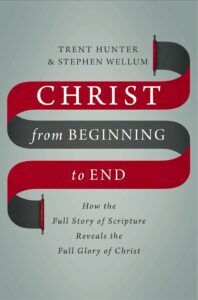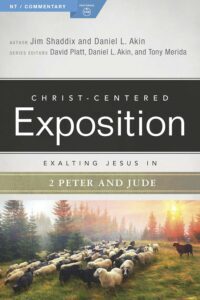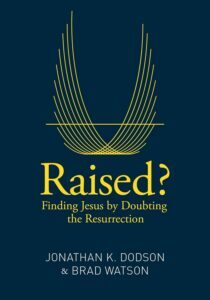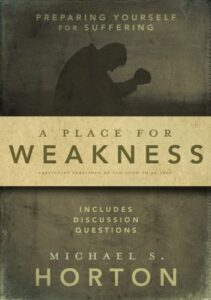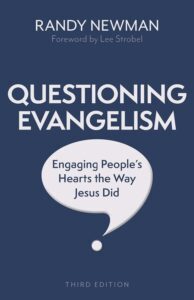Barnabas Piper's Blog, page 25
June 6, 2024
Kindle Deals for June 6
Some Kindle deals worth your mind and money today:
Omaha Beach: D-Day, June 6, 1944 by Joseph Balkoski – $1.99

The Bedford Boys by Alex Kershaw – $3.99

TEN DAYS TO D-DAY countdown to the liberation of Europe by David Stafford – $3.99
What is the Gospel by Greg Gilbert – $3.79
Christ from Beginning to End: How the Full Story of Scripture Reveals the Full Glory of Christ by Trent Hunter & Stephen Wellum – $2.99
Why I Trust the Bible: Answers to Real Questions and Doubts People Have about the Bible by William Mounce – $1.99
God of All Things: Rediscovering the Sacred in an Everyday World by Andrew Wilson – $1.99
MY BOOKS:The Pastor’s Kid: What It’s Like and How to Help – $2.99
 The Curious Christian: How Discovering Wonder Enriches Every Part of Life – $3.99
The Curious Christian: How Discovering Wonder Enriches Every Part of Life – $3.99
These links are Amazon affiliate links.
June 5, 2024
Kindle Deals for June 5
Some Kindle deals worth your mind and money today:
Exalting Jesus in 2 Peter, Jude (Christ-Centered Exposition Commentary) by Jim Shaddix – $4.99
Holy Ground: Walking with Jesus as a Former Catholic by Chris Costaldo – $5.49
Raised?: Finding Jesus by Doubting the Resurrection by Jonathan Dodson & Brad Watson – $2.99
A Place for Weakness: Preparing Yourself for Suffering by Michael Horton – $5.99
Give Me Understanding That I May Live, Volume 2: Situating Our Suffering within God’s Redemptive Plan by Mark Talbot – $2.99
Chasing Love: Sex, Love, and Relationships in a Confused Culture by Sean McDowell – $4.99
Arnie: The Life of Arnold Palmer by Tom Callahan – $1.99
MY BOOKS:The Pastor’s Kid: What It’s Like and How to Help – $2.99
 The Curious Christian: How Discovering Wonder Enriches Every Part of Life – $3.99
The Curious Christian: How Discovering Wonder Enriches Every Part of Life – $3.99
These links are Amazon affiliate links.
June 4, 2024
Questions About Faith and Doubt with Mark Sayers
Mark Sayers is an author I deeply respect whose work has encouraged and taught me much in recent year. He is the Senior Leader of Red Church. and is the author of several books including Facing Leviathan: Leadership, Influence, and Creating in a Cultural Storm, Disappearing Church: From Cultural Relevance to Gospel Resilience, and Reappearing Church: The Hope for Renewal in the Rise of Our Post-Christian Culture. Mark lives in Melbourne, Australia with his wife Trudi, daughter Grace, and twin boys Hudson and Billy.
1) What does “I believe; help my unbelief” mean to you?I find this verse a wonderfully human utterance. It is not a philosophical statement written in a dusty academic book, but rather a live statement that emerges from the heart of a father who wishes to see his son’s torment end. It is a desire for faith that emerges from a flesh and blood man, just like me, who is filled with reason, emotion and desire. A man who wishes for faith, but who acknowledges the desert of unbelief within him. The beauty of this verse is that it is spoken in the presence of the Christ who has come to conquer such unbelief.
2) Do you have a favorite Bible passage about belief and doubt? What is it and how has it impacted you?Probably the woman who was healed by Jesus in Matthew 9, after touching the hem of his garment. Here is this woman who must have been overcome by doubts, yet at the same time filled with faith. As someone who had been bleeding for twelve years she was religiously unclean, and naturally would have worried that by touching Jesus she could have made Him unclean, what would his response be? Anger? Disgust? How would the crowd react? Would she experience even more marginalization? And yet amongst what have been so many doubts, this bold faith. A faith which is rewarded. Jesus feels power go from him. This woman who must have been caught in a mix of doubt, shame, faith and hope experiences both healing and the power of God. Such an incredible moment.
3) What is belief in God?For me my belief in God is multilayered. Today we reduced belief to a correlation of facts, coldly noted and adhered to. I believe that belief in God is so much more. Reason and facts are in there, but so is revelation, knowing, relationship, love. Belief in God is as Leslie Newbigin described it as being in the middle of a story, there is so much we know and can attest to, and at the same time we have to have faith in the goodness of the writer and main actor in the story, that he has covered the parts of the story that we cannot see from our vantage point.
4) What do you see as the relationship between belief and doubt?Doubt is the blank parts of the canvas which is being filled with the color of belief.
5) How can a person strengthen their belief in God?Pray that dangerous prayer that God will reveal himself to you no matter the cost. Remember that Christianity is a walking faith, to be put into action and practiced. Read God’s word, actually try doing the stuff that Jesus spoke of. Immerse yourself in the lives of the heroes of the faith, learn from their faith and their doubts. Don’t forget that Christianity is a community faith, to be lived with others, others who can sustain and encourage you when doubt comes.
Kindle Deals for June 4
Some Kindle deals worth your mind and money today:
The Church: The Gospel Made Visible by Mark Dever – $4.99
Exalting Jesus in Psalms 51-100 (Christ-Centered Exposition Commentary) by David Platt, Jim Shaddix, & Matt Mason – $4.99

The True Nature of a Gospel Church by John Owen – $1.99
 Questioning Evangelism: Engaging People’s Hearts the Way Jesus Did by Randy Newman – $2.99
Questioning Evangelism: Engaging People’s Hearts the Way Jesus Did by Randy Newman – $2.99
Crazy Horse and Custer: The Parallel Lives of Two American Warriors by Stephen Ambrose – $3.99

“The Good War”: An Oral History of World War II by Studs Terkel – $2.99
The Pastor’s Kid: What It’s Like and How to Help – $2.99
 The Curious Christian: How Discovering Wonder Enriches Every Part of Life – $3.99
The Curious Christian: How Discovering Wonder Enriches Every Part of Life – $3.99
These links are Amazon affiliate links.
June 3, 2024
Kindle Deals for June 3
Some Kindle deals worth your mind and money today:
The Secret Place of Thunder: Trading Our Need to Be Noticed for a Hidden Life with Christ by John Starke is $2.99
A Grief Observed by C.S. Lewis – $.99 (and only $6.99 in paperback)
The Wisdom of God in the Salvation of Men by Jonathan Edwards – $1.99
Reactivity: How the Gospel Transforms Our Actions and Reactions by Paul Tripp – $2.99
Paul, Apostle of God’s Glory in Christ: A Pauline Theology by Tom Schreiner – $2.99
Adorning the Dark: Thoughts on Community, Calling, and the Mystery of Making by Andrew Peterson – $4.99
Justification: An Introduction by Tom Schreiner – $4.99
Hidden with Christ in God: A Theology of Colossians and Philemon by Kevin McFadden – $4.99
Harvesting Joy From Tears
“Those who sow in tears shall reap with shouts of joy!” (Psalm 126:5)
All of us go through times of great sorrow–a loss, depression, consequences for our sins, sins committed against us. It hurts. Each day feels like a burden, and they seem like they will never come to an end. This is when it matters so much that the Bible is a profoundly real book, speaking to your life and mine. Psalm 126:5 says, “Those who sow in tears shall reap with shouts of joy!”
The Bible acknowledges sorrow and speaks directly to its reality in our lives. More than that, it compares sorrow to a farmer sowing seed, to the grueling hard work of planting in the hopes that they will grow into something fruitful. That is what periods of sorrow and pain feel like, right? They are agonizing and exhausting; all we can do is hope they will end and become something good.
Those faint hopes can cling to this promise! Because of God’s faithful, loving sovereignty and because of the work of Jesus, our sorrows will grow into abundant joy. Maybe we will see the fruit of redemption (when God takes something bad and recreates it into something good) in this life. Or maybe we bear our sorrow until we step into eternal life with Christ. But our joy is assured in Jesus. Our sorrows and pain will grow into a harvest of gladness, laughter, and joy.
 I originally wrote this post for my church, Immanuel Nashville, in our Daily Pulse email. If you want encouragement from God’s word delivered Monday thru Friday to your inbox, I encourage you to subscribe!
I originally wrote this post for my church, Immanuel Nashville, in our Daily Pulse email. If you want encouragement from God’s word delivered Monday thru Friday to your inbox, I encourage you to subscribe!
June 1, 2024
An Invitation to Help Our Church
Earlier today my friend and lead pastor, TJ Tims, shared this video regarding a significant need and opportunity our church, Immanuel Nashville is facing. We want to get the word out to all our friends and supporters, especially those for who the ministry of Immanuel has been meaningful over the years. Would you consider praying for us and helping spread the word?
Teleprompter-2024-31-05_13-26-57audio-and-video-player require JavaScriptTRANSCRIPT:
Hey, friends, if you’re watching this, consider it your invitation to join an eight week journey with Immanuel Nashville. Now, here’s the deal. You can find all this in this. (tenthgeneration.org)
Our church home is being sold and we’re trying to buy it. Our landlord, Rolling Hills Community Church has accepted an offer of $15.5 million for the property that we’ve been leasing for the last decade. We have roughly eight weeks to match the offer, and we need your help in giving and praying and especially in getting the word out to others who can do the same.
I know there are many friends of Immanuel around the world: people who have benefited from our pastors or our podcast or our songs, people who would be upset if they found out after the fact that they could have helped us keep our home if only they’d known. So please help us get the word out about our need for help to buy our home in Nashville on a street corner where God has so blessed us and, I hope, given us a chance to bless you too.
And this eight-week push gets kicked off officially tomorrow, Sunday June 2, as we start a new sermon series in Revelation called “The Light of Christ in the Life of the Church.”
And in true Immmanuel fashion, I want you to know that this is an anti-building-campaign campaign. We’re going to hyper-focus right now on the glorified Christ in the first three chapters of Revelation and recalibrate to his vision of a church that radiates his glory because our most urgent need as always, especially right now, is to come into contact with the risen Christ.
And because, however this turns out at the end of eight weeks, we know that our forever home is with Christ. We are at home where he is. So whether you’re around the world or whether you can be here [in Nashville] with us tomorrow morning, I hope that you’ll join us for this eight-week journey as we dig into the glory of Jesus Christ.
Kindle Deals for June 1
A few Kindle deals worth your mind and money today:
The Young Lions: A Novel by Irwin Shaw – $2.99
The Great Gatsby by F. Scott Fitzgerald – $1.98
The Adventures of Tom Sawyer by Mark Twain – $1.99
The Eleventh Man: A Novel by Ivan Doig – $2.99
Deep River: A Novel by Karl Marlantes – $3.99
Only Killers and Thieves: A Novel by Paul Howarth – $3.99
To Sir, With Love by E.R. Braithwaite – $2.99
May 31, 2024
Kindle Deals for May 31
A few Kindle deals worth your mind and money today:
The Pastor’s Kid: What It’s Like and How to Help – $2.99
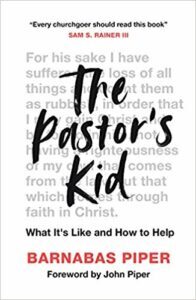
The Curious Christian: How Discovering Wonder Enriches Every Part of Life – $3.99
Encouragement for the Depressed by Charles Spurgeon – $6.64
How Do I Get Started in Evangelism? By J. Mack Stiles is $1.89
The Soul of Baseball: A Road Trip Through Buck O’Neil’s America by Joe Posnanski – $2.99
Silence: A Novel by Shusaku Endo – $6.98
The Real All Americans: The Team That Changed a Game, a People, a Nation by Sally Jenkins – $6.99
American Passage: The History of Ellis Island by Vincent Cannato – $3.99
COMPANY COMMANDER the classic infantry memoir of WWII by Charles B. MacDonald – $4.99
Pegasus Bridge by Stephen E. Ambrose – $1.99
A Book Turns 10
On June 1, 2014–ten years ago almost to the day–The Pastor’s Kid released. It was my first book and at the time it felt like a risk because, aside from some small articles, it was my first publication and I didn’t know if it was any good. But even more so it felt like a risk because it was an effort at being honest about hard things without tearing down people (my parents) and an institution (the church) that I loved. It felt a little like putting my words in a bottle and tossing them into the ocean, just hoping they would reach the right eyes and hearts. In fact, writing still feels a bit like this a decade later.
In the ten years of this books’s life I have been stunned by the accounts I’ve heard from PKs and pastors alike, even up to this past week. The bottle floated to the right people, the people I wrote for in the first place.
I’ve heard from teenagers who feel spoken for and understood.
I’ve heard from elderly former PKs with complicated feelings toward the church because no one ever spoke up for them.
I’ve heard from pastors raising teenagers who were able to have heartfelt conversations and learn what was really going on in their kids hearts for the first time.
I’ve heard from pastors raising young children grateful to see ahead of time some landmines to avoid.
I’ve heard from Pastors who desired to repent toward their kids and kids who desired to repent toward their parents and their church.
I remember praying on that release day that God would use this book to encourage people, to build up, and to lead to some healing within his church. What I have seen and heard in the last ten years is that, in some small ways, God has answered that prayer. Today I pray that, so long as copies of The Pastor’s Kid exist, it continues to encourage people, to build up, and to lead to some healing within his church by pointing to the grace of Jesus.
To celebrate 10 years in publication the publisher, The Good Book Company, is offering the ebook for just $2.99 this month.



